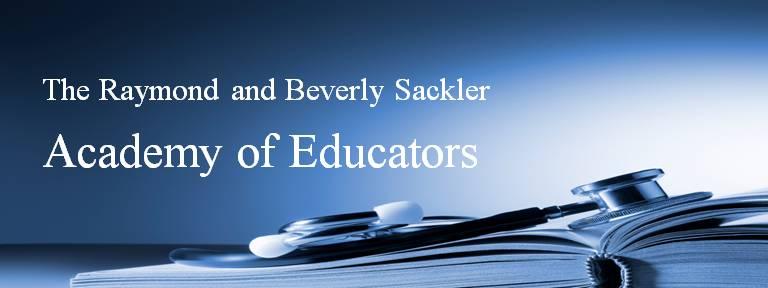Academy of Educators – Small Educational Grants

The small grant program has been temporarily suspended.
Application and Submission Process
Projects may include educational scholarship related to curriculum development (e.g., design, implementation or scholarly evaluation of the impact of innovative curricula), development and validation of assessment or evaluation tools, development and evaluation of instructional materials, or other research focused on enhancing medical education.
2013-2014 Awardees
- Virtual Cardiovascular Physical Exam: Using Green Screen Technology to Teach Cardiovascular Auscultation Skills with Immediate Imaging Feedback. Principal Investigator: Jodi Tinkel, MD, Assistant Professor Division of Cardiovascular Medicine
In cardiology, the stethoscope has been supplanted by multiple imaging modalities including echocardiography, CT, MR and invasive angiography. The proposed technology could be used in a feedback loop to hone physical exam diagnostic skills. I propose to create a series of short educational videos that incorporate auscultation findings using a recordable stethoscope with the imaging results to share with students in cardiology. I will use audio and video technology linked with green screen technology to create the educational videos. I propose a series of 10-12 videos covering topics including valvular heart disease, carotid and peripheral arterial disease to list a few.
- Assessment of Medical Narratives, Primary Author: Patricia Hogue, PA PhD1, Co-PI: Reginald Baugh, MD2, Other co-investigators: Kim Trott RN3, James Jones MBA4, Valarie Takyi MD2, Cassius Hudson Pharm D5
We propose to use an online methodology to teach acquisition of patient narrative analysis skills. It is with great difficulty students acquire the skill to recognize, collect and document key patient elements from the patient narrative, or history of present illness. We are proposing an educational process whereby the student will process the narrative, emphasizing some points and eliminating others, shaping it into a recognizable medical narrative.
- Building Resiliency in Family Medicine Residents: Primary Investigator: Julie Brennan, Ph.D., R.D., L.D. Co-Investigators: Angele McGrady, Ph.D., LPCC; University of Toledo, Department of Psychiatry, Linda Myerholtz, Ph.D.; Mercy Family Medicine Residency, Rebecca McClarren, M.D.; University of Toledo, Department of Family Medicine, Daniel Rapport, M.D.; University of Toledo, Department of Psychiatry
The purpose of this study is to study the impact of a resiliency training program on resident’s resiliency, quality of life, burnout and general psychological distress. The Resiliency Training Program is an interactive series of experiential sessions that have been designed based on a review of the resiliency literature. The program will include concepts such as increasing value as a physician and self-awareness, balancing and prioritizing professional and personal time, maintaining supportive professional and personal support and learning effective practice management style. Additionally, positive psychology principles that include increasing resources, positive connections, perceived control, and emphasizing meaning, mindfulness and flow will be integrated throughout the program.
- Tech+Touch: Developing and Implementing Curricular Innovations to Scaffold Medical Students' Learning in a Service Learning-Intensive Preclinical Elective Course, Yvette V. Perry, PhD, Office of Student Affairs
The goal of the proposed curriculum development project is to design and implement a system of formal student feedback (formative and summative) in a new service learning intensive (SLI) format of a preclinical elective for medical students. Specifically, I will use "web 2.0" teaching-learning tools to create activities and materials to scaffold students' critical reflection skill development as well as encourage greater self-directed and peer-to-peer learning. In addition to Blackboard's collaboration tools, students will be assigned to watch and respond to brief video lessons I create in the TED-Ed platform (as an example, see my lesson: http://ed.ted.com/on/gmSnt0nx) and "micro response readings" (MRR) on my course feed on the Ponder platform (https://www.ponder.co/). I will develop these materials and activities over several months of the project, using students' work to revise subsequent lessons as well as taking advantage of current events related to the course topic throughout the year.
2012-2013 Awardees
1) Interdisciplinary Crisis Management for Medical and Public Health Professionals: A semester course. Principle Investiagtor: Barbara Saltzman, Assistant Professor, Department of Public Health & Prevention
2) Scientific Communication Skills and Career Goals. Principle Investiagtor: Kandace Williams, Professor, Biochem,, Cancer Biology


